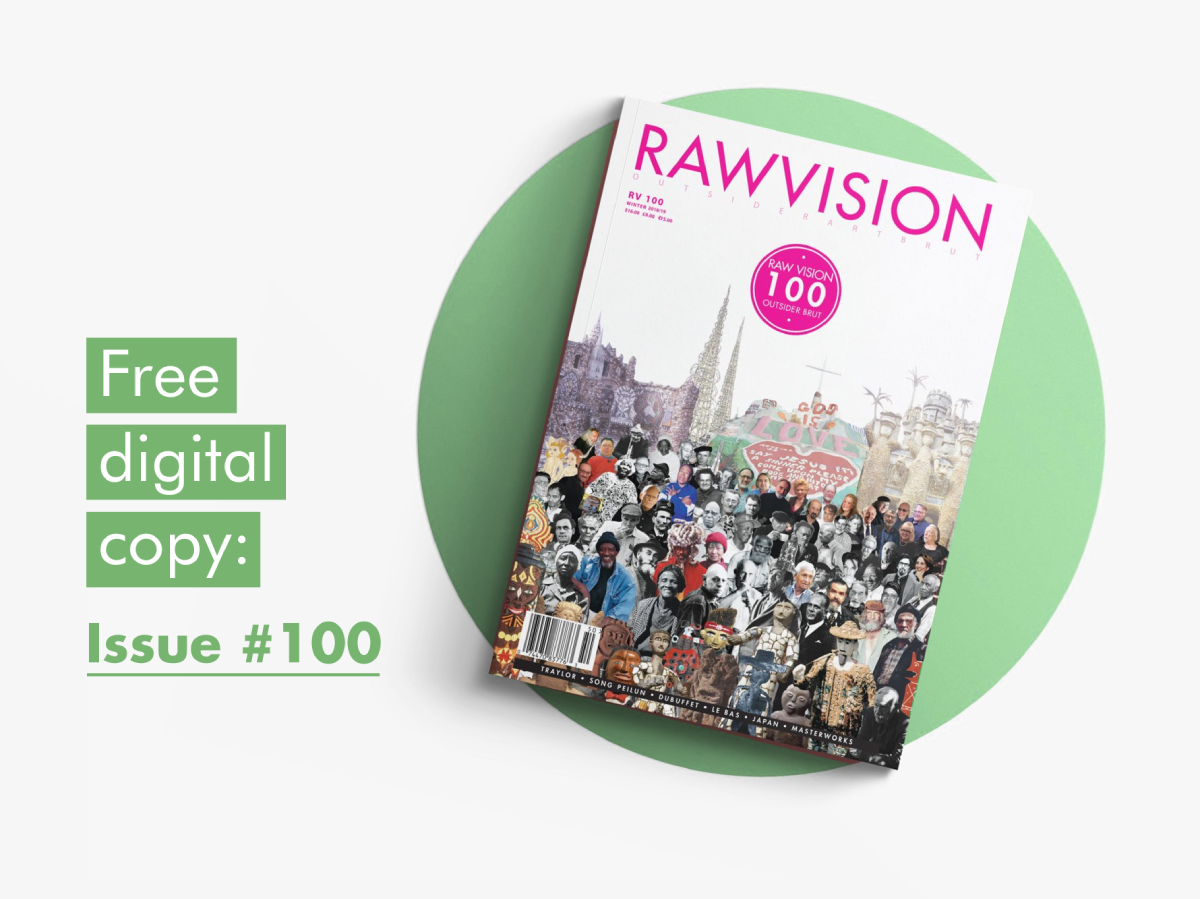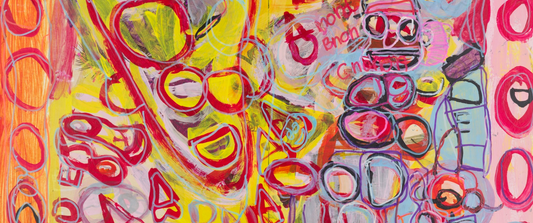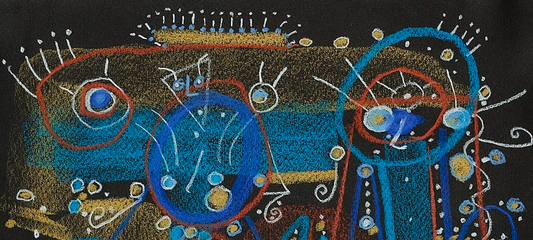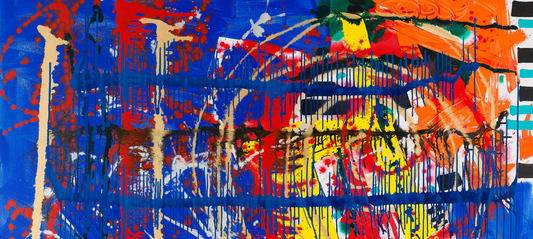First published: Spring 2003
For Rosa Zharkikh, a former factory worker living in Moscow’s sprawling and overcrowded outskirts, the physical world is nothing more than a barrier concealing a realm of truth, the human body a vessel for the true spirit-being. In her artworks Zharkikh attempts to capture the flowing, evolving, ever-changing nature of this spirit-being. As she seeks total immersion in her own inner world, the familiar objects of everyday life have been gradually forced out of her tiny flat, to be replaced by a tangled mass of strange drawings, embroidered pictures, decorations and costumes.

Born in Moscow in 1930, Rosa Zharkikh’s early life was typical of the Soviet-era working class. Although she came from an educated family (her mother was a teacher and her father an engineer), Zharkikh dropped out of high school and graduated from a vocational school that specialised in training blue-collar workers.
For all of her adult life, Zharkikh worked as a repair and maintenance specialist in heavy-machinery factories – first in the provincial town of Vladimir and later just outside Moscow. At the height of the Soviet era, this was a lonely and monotonous existence. She spent most of her day on the factory assembly lines, the dirt, gloom and dust lit only by the small fires that the workers built to keep warm or by the occasional flare of a blowtorch. In the evenings, Zharkikh returned to Moscow’s working class suburbs, where she lived alone in a cramped second-floor apartment overshadowed on all sides by concrete high-rise blocks.
This is an article extract; read the full article in Raw Vision #42




